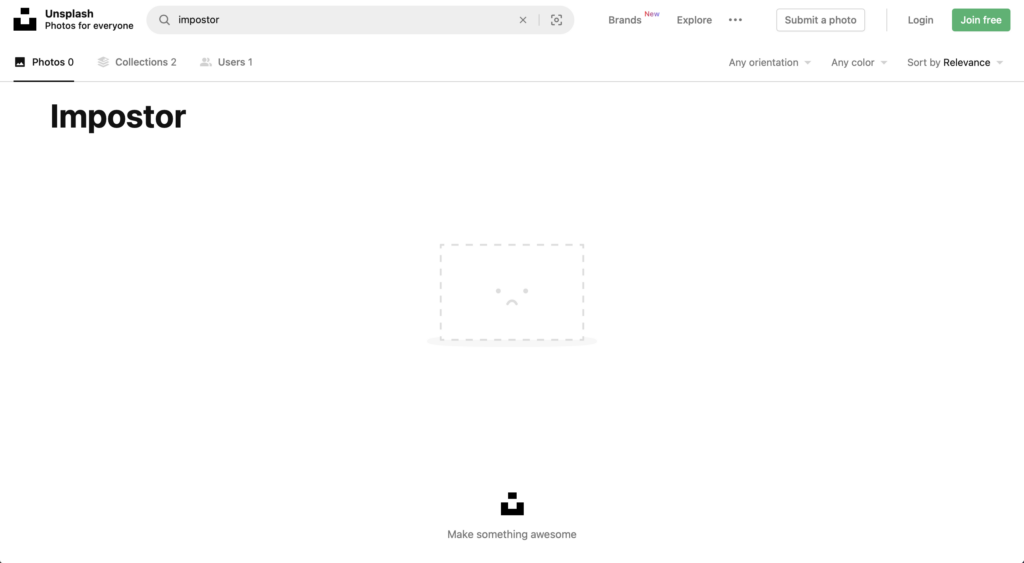What makes anyone a “product owner”? What makes anyone a ”product manager” or a “product consultant”?
As an employee, your employment agreement usually comes with a title. Soon enough, it becomes part of your identity. And — since it’s assigned to you, it’s external validation.
As a freelancer however, you (need to) give yourself your own title — and especially when starting out, you need to fill in that blank to get jobs.
So — “fake it until you make it”? Watch out for impostor syndrome — more on what it is, why it’s dangerous, and how I dealt with it below!
You’ve got places to be? No worries, we’ve got you covered with the TL;DR key take aways:
- Impostor Syndrome is a psychological pattern that promotes doubting your personal skills and achievements.
- Self-doubt can spiral out of control – e.g. if you keep doubting your abilities to help clients with your services, they might sense it — and not book you (anymore).
- Reflect on how you see yourself — recall all your past successes, and use that positive energy to create new and reassuring credos.
- Talk to your peers — i.e. other freelancers; you’ll see that feeling like an impostor is somewhat of a common thread, even with people that seem very confident to the outside — and how they overcame it (for the time being, at least).
Still here? Alright, let’s get into it:
What is this Impostor Syndrome, and why is it dangerous?
If you ever felt — or were made to feel — like you’re “not good enough” or maybe even “not cut out for the job” altogether, you might start feeling like you’re hiding behind a mask that could get yanked away at any moment, only to expose you as someone else than you claimed to be — an impostor.

This psychological pattern promotes a feeling that anyone might have — that you didn’t succeed based on your skills or qualifications, but out of sheer dumb luck and coincidence. It might start to feel like you’ve sneaked your way into your position, and it’s just a matter of time or a false move that will uncover your masquerade.
But isn’t a bit of self-doubt and self-criticism healthy and helpful?
Well, yeah — most definitely! Self-reflection and humility are very important to me, but impostor syndrome sets in when you stop helping and start hurting yourself — when it makes you feel smaller than you actually are.
How impostor syndrome crept up on me
As I said, for employees, impostor syndrome is somewhat curbed by the job title that you’re given. You’re the “Product Manager”. Or the “UX Designer”. Or the “Marketing Lead”. It becomes:
- your LinkedIn headline,
- the thing you write beneath your name on meetup name tags,
- and your answer to the small talk favorite of “So, what do you do?”.

Starting out as a freelancer, you’re technically unemployed (unless you started on the side — read more about that here).
When registering your business, you need to fill in an “occupation”. But you’re only filling in a blank because you have to. It’s your choice — and your responsibility to not mess it up.
And then, your friend calls. Or your sibling. Or — deity forbid, your parents.
“So, heard you left that job — what are you up to now?”
What’s your answer?
“I’ve been promoted!” — Nah, that doesn’t work. No one promoted you, you did that on your own!
“I promoted myself!” — Yikes! Have fun with those follow-up questions!
“I’ve decided to go freelance!” — Better…but — when does the going end? When are you actually freelance?
Most would argue: “When you’ve landed your first client/project.”
So until then, you’re stuck between showing as much self-confidence as you can when talking to friends or potential clients, while you’re struggling with technically being out of work at the moment.
This can get very draining — especially when you strike out the first few times trying to land jobs.
If you noticed things getting worse from there, you need to act fast — you might get too risk-averse and too afraid of trying new approaches. You might start procrastinating, and get frustrated — which only makes your impostor syndrome stronger.
But:
If you don’t believe in yourself, why should potential clients?
Looking at what you actually have under your belt, and how that can connect with your audience (clients), is key to pushing through that slump.
Don’t let anyone (yourself included) fool you into believing you’re less than you are!
And even if you feel like your portfolio could be bigger and more impressive — there’s ways to make that happen! (more on that another time)
Cool cool, Mr. Hobby Psychologist, so what now?
So, as Drake apologetically states “I’m a popstar, not a doctor”, I can only give you a starting point on how to get rid of impostor syndrome. Become your biggest supporter by focusing more on all your past successes — the following steps have helped me in personally:
- Get rid of negative dogmas — Change your perspective by destroying the old one. Write down all your negative thoughts and how they keep stopping you in your efforts, and why they are bullsh*t. Try to remember reinforcing situations from the past that work as valid proof that your old negative ideas are only in your head.
- Ask for honest feedback — Questioning your own skills and abilities over a longer period makes it difficult to change your perspective. I got in contact with close colleagues and trusted friends, and asked them for feedback — they will help you with validating whether your self-criticism is legit.
- Most importantly — Don’t be too harsh on yourself! — Please, please don’t expect the impostor syndrome to be gone by tomorrow. Dealing with it is more like a marathon than a sprint, and it’s okay that some parts of the route might feel easy, while other parts will be tougher. Give yourself time! 🤞😌
So, how about it?
What where your experiences with self-doubt and impostor syndrome? And how did you handle it? We’d love to hear your thoughts!
Interested in more stories around freelancing in Product Management? We publish regularly to our Freelance Product Manager publication & would appreciate a follow!
And as always,
Thanks so much for reading!
We acknowledge that with the 5 minutes it takes to read this article, you could’ve literally done anything else, and we’re very honored that you decided to dedicate them to our piece! ❤️

